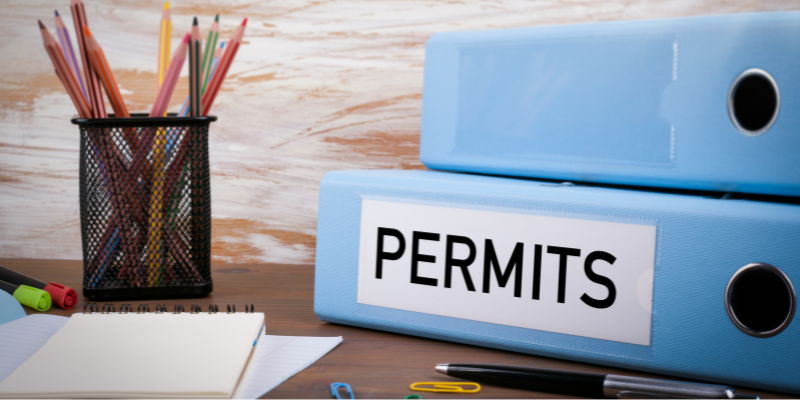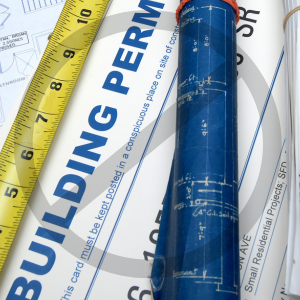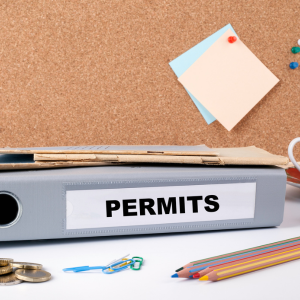
Understanding Unpermitted Work in Real Estate Sales

Understanding the complexities of unpermitted renovations in Houston real estate transactions is crucial when selling a home with them. Unpermitted work is any changes or improvements made to a property without the necessary approvals from local building authorities.
In Houston’s real estate market, such changes can pose significant challenges during selling. Unauthorized changes, from minor cosmetic updates to extensive structural remodels, can have legal and financial implications for buyers and sellers.
Sellers are required by law to disclose any known unpermitted work, which can impact the property’s marketability and valuation. Buyers may require retroactive permits or additional inspections to ensure safe and compliant renovations.
To navigate these complexities successfully, it’s essential to seek guidance from professionals familiar with Houston’s property regulations, including legal experts specializing in real estate law. This proactive approach can help reduce the risks of unpermitted work and lead to smoother closings. For a faster, more convenient selling process, consider working with cash home buyers in Houston and surrounding Texas cities, who are experienced in handling transactions with fewer obstacles.
Common Types of Unpermitted Work Found in Residential Properties
When facilitating the sale of a Houston residence with unpermitted renovations, it is essential to comprehend the prevalent categories of unpermitted work typically encountered in residential properties. Many homeowners engage in kitchen or bathroom renovations without securing the requisite permits, potentially resulting in complications during the sales process.
Likewise, modifications such as additional bedrooms, sunrooms, or garage conversions frequently lack appropriate authorization and inspections. Electrical enhancements, including installing new lighting fixtures or rewiring for sophisticated appliances, are commonly executed without permits.
Plumbing alterations, such as pipe configuration adjustments or new water heater installation, may pose issues if not adequately recorded. Structural modifications, such as removing load-bearing walls or adding decks and patios, may go unnoticed but can present substantial challenges when selling a property.
Comprehending these common instances of unauthorized work is crucial for mitigating potential legal and financial consequences during a real estate transaction in Houston.
How to Identify Unpermitted Work in Your Home
When preparing to sell your Houston home, it is critical to identify any unpermitted work because it can significantly impact the sale process. Review previous renovation documentation, such as blueprints and City of Houston permits.
A lack of permits for specific upgrades often indicates unpermitted work. Pay special attention to common areas where homeowners usually make improvements without a license, such as basements, attics, kitchens, and bathrooms.
Look for signs of recent renovations that do not match the age and condition of your home, such as new electrical wiring or plumbing fixtures. Hiring a professional home inspector can be highly beneficial; they know how to detect discrepancies between visible updates and permits.
To ensure compliance with Houston’s building codes, check with local building departments to ensure all necessary permits have been obtained for previous projects. Recognizing these indicators early allows you to address potential problems before selling your home.
Navigating Local Building Codes and Regulations
Selling a Houston home with unpermitted renovations requires knowledge of local building codes and regulations. The City of Houston has specific permit and inspection requirements, so homeowners should be familiar with these rules before listing their property.
Unpermitted work can complicate the sale process because potential buyers may be wary of purchasing a home that does not comply with local ordinances. To navigate this effectively, homeowners should first determine which renovations do not have proper permits by reviewing city records or consulting a professional.
Once unpermitted work is identified, it’s essential to determine whether retroactive permits can be secured or if corrections are needed to meet code requirements. To help ensure compliance and a smoother transaction, it’s worth exploring how Sell My House Fast Houston works, especially if you’re looking for a hassle-free way to sell a property in Houston that may have permit issues.
Proactively addressing these issues can prevent closing delays and legal liabilities related to non-compliance in real estate.
The Risks of Selling a House with Unpermitted Additions
Selling a house in Houston with unpermitted renovations poses significant risks, potentially complicating the transaction and reducing the property’s value. Unpermitted additions, such as room extensions or remodeled spaces, may violate local building codes, resulting in legal and financial liabilities for both the seller and the buyer.
Unauthorized modifications may result in fines from city inspectors during routine inspections or buyer due diligence. Furthermore, due to these non-compliant changes, appraisers may lower the home’s valuation, limiting financing options for prospective buyers.
Failure to inform potential purchasers about unpermitted work may result in lawsuits or contract cancellations. Buyers may hesitate to purchase a property with undocumented improvements due to possible repair costs or legal issues. Sellers should address these concerns before listing their home for sale.
Legal Implications of Selling Property with Unpermitted Structures
When selling a Houston property with unpermitted renovations, it’s critical to understand the potential legal implications. If not properly addressed, unpermitted structures can cause legal issues and liabilities for sellers.
Disclosure is essential; Texas law requires sellers to disclose any known defects or unpermitted work when listing their home. Failure to do so may result in lawsuits or financial penalties after the sale.
Buyers may demand that permits be obtained retroactively, delaying closing and increasing costs. Furthermore, appraisals may be lower if unpermitted renovations are discovered, limiting buyers’ financing options.
Partnering with experts who understand local regulations, such as a real estate attorney familiar with Houston’s building codes, can offer essential guidance throughout the sales process. This helps ensure legal compliance and minimizes the risks associated with unpermitted improvements. If you’re looking for a more straightforward solution, Sell My House Fast Houston can help by offering a streamlined selling process for properties with potential code issues.
Evaluating the Financial Impact of Unpermitted Construction on Home Value

When selling a Houston home with unpermitted renovations, you must understand the financial impact on the property’s value. Unpermitted construction can impact buyer interest and appraisal results, potentially lowering the home’s market value.
Buyers may hesitate due to the legal risks associated with unapproved changes, resulting in fewer offers or lower bids. Furthermore, appraisers frequently consider the lack of permits when determining property value, which can result in a lower valuation than comparable homes with permitted enhancements.
Addressing these issues may entail negotiating with potential buyers or investing in retroactive permits, which could affect the final sale price. Understanding local real estate market trends and consulting with experts on Houston’s housing regulations can help you anticipate the impact of unpermitted work on your sale.
Disclosure Requirements for Sellers with Non-compliant Properties
If you want to sell a Houston home that has unpermitted renovations, you need to know the rules about what you have to tell potential buyers. Texas law says that sellers must inform potential buyers about any problems they know about, such as changes to the property that don’t follow the rules.
Not telling the truth about work that wasn’t allowed can make you liable and even get sued. Sellers must give a full Seller’s Disclosure Notice that lists any changes made without permits or that don’t follow local building codes.
Being open about these renovations that weren’t allowed helps buyers trust you and keeps sellers from getting into legal trouble later. Hiring a real estate lawyer can ensure that all disclosures are complete and follow state rules. This protects the sale process and lowers the risks associated with properties that don’t follow the rules.
Steps to Rectify Unpermitted Work Before Selling
Addressing these issues is critical to a successful transaction when preparing to sell a Houston home with unpermitted renovations. The first step is to thoroughly inspect the property to identify any work done without the proper permits.
Engaging a licensed contractor familiar with local building codes can provide helpful information about what modifications are required. Once identified, homeowners should contact the Houston Building Inspection Office to learn about the requirements for obtaining retroactive permits.
Gather all relevant documentation, such as architectural plans and previous contractor details, to speed up the approval process. In some cases, adjustments or repairs may be required to bring the work up to code standards.
Hiring an experienced real estate attorney can provide legal guidance, ensure all disclosures are made correctly, and minimize potential liabilities during the sale. By proactively addressing unpermitted renovations, sellers can improve the property’s marketability and avoid legal complications during negotiations with buyers.
How to Obtain Permits Retroactively for Unauthorized Projects
Navigating the sale of a Houston home with unpermitted renovations can be difficult, but obtaining permits retroactively for unauthorized projects is a critical step toward a successful transaction. The first step homeowners should take is to contact the Houston Permitting Center to learn about the specific requirements for their property.
Hiring a licensed contractor who understands local building codes and can determine whether the existing work complies with them is critical. Homeowners may need to submit detailed plans and undergo inspections to ensure all renovations meet safety standards.
Furthermore, any required modifications must be completed before the issuance of a permit. Engaging an experienced real estate attorney who specializes in Texas property law can provide valuable legal insights, assisting in navigating potential complexities and ensuring that all documentation is properly filed.
By addressing these issues, sellers can avoid closing delays and lower their risk of financial penalties or legal disputes due to noncompliance with city ordinances.
Insurance Challenges for Homes with Non-permitted Improvements
Selling a Houston home with unpermitted renovations poses significant insurance challenges, which homeowners must carefully address. Insurance companies often hesitate to provide coverage for homes with non-permitted improvements because of the increased risk and potential liability issues.
Unauthorized renovations can complicate claims, leading insurers to deny coverage or refuse to pay out on issues resulting from these changes. Homeowners planning to sell should disclose any unpermitted work upfront, as failure to do so can result in legal complications and buyer disputes.
Sellers must consult with an experienced real estate attorney who understands Texas property laws and can advise them on the best way to navigate these insurance challenges. Furthermore, obtaining a specialized inspection report that thoroughly documents the condition and safety of the unpermitted improvements may aid in negotiations with prospective buyers and their insurers.
Buyer Concerns and Questions About Unpermitted Renovations
Consider buyer concerns and questions when selling a Houston home with unpermitted renovations. Potential buyers may be concerned about the safety and quality of unpermitted work, fearing that it will not meet local building codes or standards.
They frequently question the scope of these renovations, seeking clarification on what was changed without permits. Buyers will typically inquire whether the lack of permits will affect future resale value or cause legal complications with city regulations.
Buyers frequently express concern about potential fines or retroactive permitting requirements, as they want assurance that these issues will not be passed down to them. Furthermore, they may wonder if their homeowner’s insurance will cover any problems caused by unpermitted work.
Addressing these concerns early on by providing detailed documentation and possibly obtaining an inspection can reduce buyer anxiety and facilitate a smoother transaction process.
The Role of Home Inspections in Revealing Unapproved Modifications

Home inspections are critical for detecting unauthorized changes when selling a Houston home. Unknown inspections provide buyers and sellers with a comprehensive view of the property, highlighting any changes or additions that may violate local building codes.
Inspectors carefully examine the plumbing, electrical systems, structure, and other aspects of the home to see if there are any signs of work done without the necessary permits. By identifying illegal renovations early in the sales process, both parties can address legal issues before completing the transaction.
This proactive approach prevents future disagreements and ensures all necessary changes are made to meet Houston’s stringent regulatory standards. Sellers who understand the importance of home inspections can better prepare for negotiations. Buyers can also feel confident in their investment because they know exactly what condition the property is in and whether it is up to code.
Negotiating Home Sales When Unpermitted Work Is Involved
If you want to sell a Houston home renovated without permission, you must be careful when negotiating to avoid problems. People who want to buy a house with unpermitted work may be hesitant because they worry about safety, following the rules, and the house’s future value.
To alleviate these concerns, sellers should consider obtaining a post-facto permit, if possible, or providing credits for necessary corrections. It’s essential to be clear about the scope of unpermitted work; giving potential buyers detailed documentation can help them trust you.
If you’re selling a home without permits, it helps to work with someone experienced in handling similar situations. They can guide you in setting a competitive price that accounts for the missing permits while emphasizing the property’s strengths. Another option is to work with investor home buyers in Austin and other cities in Texas , who often purchase homes as-is and are familiar with properties with permit issues.
If you know the rules in your area and are willing to haggle over price or repairs, you can still make a successful sale even if the renovations weren’t done legally.
How Hard Is It to Sell a House with Unpermitted Work?
The legal and financial aspects of selling a home in Houston with unapproved renovations can be challenging. Buyers may be wary of projects that do not have the necessary permits, as they may not adhere to local safety regulations.
This might make the home inspection more difficult, which could cause buyers to back out or offer less money. Lenders may also turn down mortgages for houses that have undergone unauthorized renovations due to the increased risk associated with such loans.
To address these issues, sellers should consider obtaining retroactive permits or including repairs in the sale agreement. It is advisable to consult with a real estate lawyer familiar with Houston’s rules to better understand your legal options and minimize your potential liabilities.
By addressing any issues related to unpermitted renovations in advance, sellers can improve their chances of successfully closing the deal on a home.
Helpful Houston Blog Articles
- Short Sales To Relatives In Houston, TX
- Tips for Staging a House for Sale in Houston, TX
- How to Remove Bad Tenants in Houston, TX
- Can You Sell A House In Houston, Texas, With A Quitclaim Deed?
- Effective Strategies For Selling Your Foreclosed House In Houston, TX
- Steps To Remove Your Name From A Mortgage After Divorce In Houston, TX
- Effective Strategies To Minimize Closing Costs In Houston, TX Real Estate
- Navigating The Sale Of A Houston, TX Home With Unpermitted Renovations
- Best and Worst Neighborhoods in Houston, TX
- What’s the Best Time to Sell a House in Houston, TX?

| REAL ESTATE LAWS | HOME INSURANCE | REALTOR | HOME APPRAISAL | LITIGATION | CASH |
| MORTGAGE LENDERS | BUILDING PERMIT | NON-DISCLOSURE | JURISDICTIONS | HOMEOWNERS ASSOCIATIONS | HOA |
| HOMEOWNERS ASSOCIATIONS (HOAS) | ESCROW | ESCROW ACCOUNT | TAXES | TAX | |
| MONEY | LOAN | HEADACHES | FULL DISCLOSURE | COMMUNICATION | ZONING LAWS |
| PROPERTY TAXES | PROPERTY TAX | INVESTMENTS | HOME IMPROVEMENTS | AIR CONDITIONING SYSTEM | FENCE |
| EXPENSES | DEED | BUDGET | THE COST OF | WORK IN TEXAS | POOL OF POTENTIAL BUYERS |
| UNPERMITTED WORK IN TEXAS |
